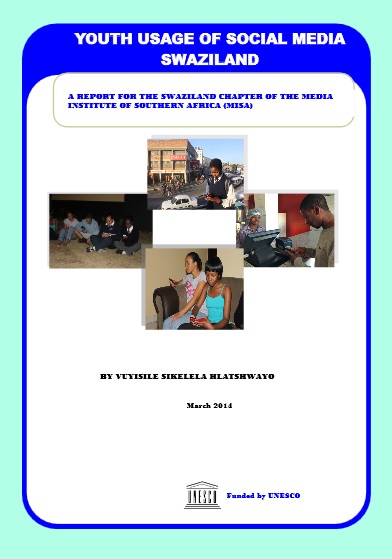Swazi youth find social media a much-needed alternative to mainstream media
A study on social media habits among Swazi youth tells just how mobile technology has permeated the culture. Critics say social media promotes immoral behavior. Advocates argue that mobile devices promote freedom of speech in a nation where much of the mainstream media falls short.
The study, a collaboration between the Media Institute of Southern Africa (MISA) and UNESCO, weighs the pros and cons of youth usage of social media in Swaziland. One hundred social media users aged 10-24 from four regions were given the survey.
Youth from all social backgrounds cite social media as their top social activity. Facebook, Whatsapp, and Mxit are most often used to communicate. No surprise there, but the additional findings are more interesting, especially given few studies of this nature have been given in any country, let alone Swaziland, which ranks near the bottom of global ICT rankings.
- Social media makes information sharing easier and quicker
- 42% feel social media is the preferred channel for communication (24% television, 22% newspaper, 12% radio)
- Youth can more easily express their right of freedom of expression which is limited in the mainstream media
- 69% cite social media as a favorite medium as opposed to mainstream media
- Facebook has become a reliable source of news information
- Instagram used by only 2%
- Respondents are concerned with immoral content (pornography, vulgar language, libel, etc.)
- Addiction to social media is a concern as it interferes with other daily tasks and leads to antisocial in-person behavior
- Trust is another concern; human trafficking is a reality
In conclusion, the study suggests five measures to ensure social media is used in the most positive way:
- provide media literacy
- educate users about the benefits and consequences
- have social media users discuss benefits of social networks
- teach social media as learning tool
- promote use of social media as a research tool













 Twitter
Twitter Facebook
Facebook Pinterest
Pinterest